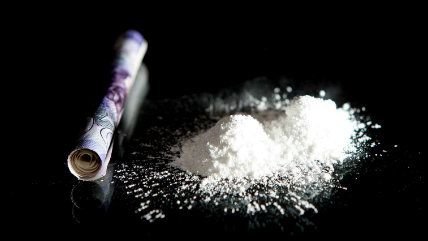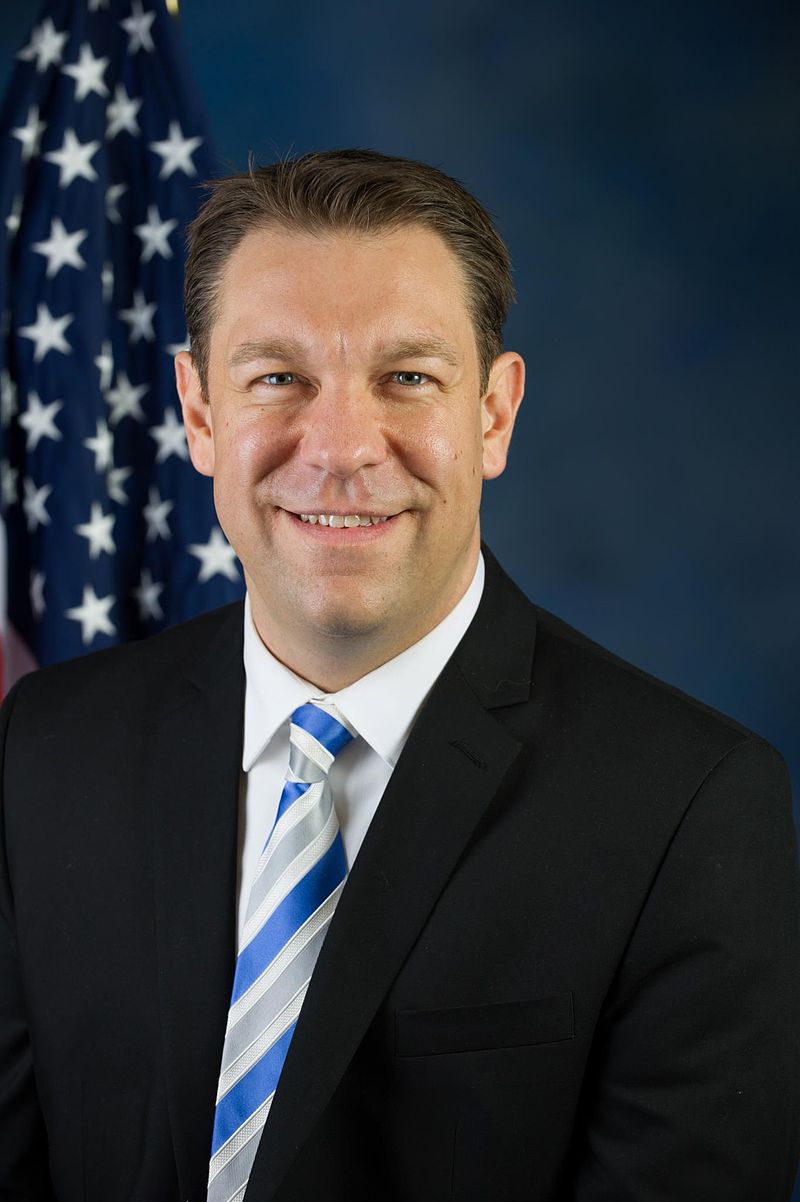This Former Congressman Is Against the War on Drugs
Trey Radel explains why he's not "just another tea party asswipe who got busted for drugs and voted to drug test food stamp recipients."

Editor's Note: In January 2013, Trey Radel came to Washington as a Republican congressman representing Florida's 19th district, an area that includes Fort Meyers and Naples. Radel had been a TV anchor prior to his win and he ran on a libertarian-leaning Tea Party platform of shrinking the size and spending of the government. Just a year later, Radel resigned from Congress after getting busted buying drugs and pleading guilty to misdemeanor cocaine possession. Ironically, Radel was and is a critic of the drug war. In his riveting new memoir about his short time in office, Radel documents not just his self-destruction but a political system that always seems to put philosophical ideals and good policy last. Democrazy: A True Story of Weird Politics, Money, Madness, and Finger Food, is a no-holds-barred account of what it's like to come to Washington and really screw up. More than that, though, it reveals a system that needs radical reform. In this excerpt, Radel recounts the immediate aftermath of his drug bust, which was inevitably (and legitimately) tied to a vote to drug-test food-stamp recipients he had cast as part of a farm bill.

During this awful time, it felt like every political pundit on the planet; every TV newscast, newspaper, and online publication; and every comedian in the world was coming after me. Although, after all those years of dreaming I'd be on SNL, I made it. Seth Meyers ripped me often on "Weekend Update." Every pundit and comedian seemed to take particular glee in my vote on the provision in the farm bill regarding food stamps and drug testing. Remember when I said that this vote would come back to bite me in the ass?
It all started when the Huffington Post ran an article with the headline: "Trey Radel, Busted on Cocaine Charge, Voted for Drug Testing Food Stamp Recipients." The irony is the HuffPo reporter, in at least one of the articles, actually expounded on my view on the failed War on Drugs and my past votes focused on criminal justice reform. But, c'mon, who reads articles? At the lowest moment of my life, I was being savaged on national television for getting busted for drugs after voting to drug test food stamp recipients.
After the press broke the massive farm bill down to a headline, the public boiled my vote down to one meme—a picture of me with white powder Photoshopped all over my face saying: "Republican votes to drug test food stamp recipients, gets busted for cocaine."
The truth was that it had not been a single vote to "drug test these dirty dogs getting handouts!" It was part of the thousand-plus-page farm bill loaded with other provisions, and it gave states more power over how they wanted to administer their food stamps. I believe in "to each state its own," especially when it comes to addressing local issues and concerns. I thought that Washington's constant "one size fits all" mandates were doomed to fail.
So while I am a Republican who is so libertarian that I could have been labeled a liberal because of my determination to end the War on Drugs and work with Democrats, it didn't matter. I was just another tea party asswipe who got busted for drugs and voted to drug test food stamp recipients.
This was especially tough for me to take because I was and am such a staunch opponent of the War on Drugs.
Our drug policies in the United States should be focusing on rehabilitation, not incarceration. There's a fiscally conservative argument for this because we throw away billions of dollars a year locking people up and turning our backs on them. Many times nonviolent drug offenders return to society lacking skills to get a job, or they're turned away from jobs because of their record. Worse, they come out as hardened criminals, which places an even greater economic burden on society.
Ironically, shortly before my bust, I worked with Democrats to cosponsor the Justice Safety Valve Act. In fact, I was one of only a few Republicans to do so. The goal: Get rid of mandatory minimums and allow judges to impose penalties below the statutory sentences. We often see cases of nonviolent drug offenders who get locked up for years only to come out with little to offer society and a society with little to offer them. It's a catch-22 with terrible results for both the individual and society. Furthermore, young Hispanics and African American men are disproportionately locked up, making life that much harder for those who have had the deck stacked against them from birth.
And there's another group of men and women who are really, really screwed over by the War on Drugs because they are caught in the middle of violence and hatred due to our inept laws. Liberals won't talk about this group because it's not politically expedient, and conservatives won't because it reveals their hypocrisy and exposes the very problems they've created through their ignorant "just say no" bumper-sticker policies.
The group? The men and women of law enforcement. I'm talking about cops.
The War on Drugs is one of the main sources of anger and resentment between communities and law enforcement in the United States today. Sure, there are heavy-handed rogue cops who use drug laws to unnecessarily surveil or outright harass individuals. But there are loads of good men and women in law enforcement who privately rail against the system that puts them and others into dangerous situations. "Hey, coppers, did you think breaking up that domestic disturbance sucked when the drunk guy pulled a gun on you just after knocking out his wife? Yeah, well, now we're sending you, a couple of white cops, into a minority neighborhood where you are utterly despised. If you 'smell something funny,' the law will compel you to drag some young adults out of their car in front of their families and friends, frisk them, embarrass them, and undoubtedly make them angry." Good luck.
Ask yourself: Would you rather have the FBI, Drug Enforcement Administration, and local law enforcement arresting people who are using recreational drugs in their home or tracking down fanatics about to walk out of their home strapped with AK-47s and suicide vests?
Do you think that example is too extreme? Go ask law enforcement how much time they waste dealing with low-level drug offenders. And after officers throw away taxpayer dollars and time to keep you safe from someone who made what is essentially a private transaction for their own private use, Juan or Devon goes to jail, crowding our prisons with these not-so-grave threats to society. And, mind you, you're paying the bill—billions a year—to keep them locked up.
Oddly, when it comes to alcohol, society somehow looks at people who get busted for DUIs with a chuckle and shrug. "Haha! Did Uncle Billy get popped for driving after his twelfth Busch heavy?!" Yes, he did! And the difference between Uncle Billy, and millions of others like him who drink and drive, is the person behind the wheel after a few drinks might kill your entire family with their car while you're sharing the road with them.
As for drug testing food stamp recipients, the policy has been proven to be a failure economically and in terms of enforcement; the cost of the testing hasn't been outweighed by arrests because the states rarely catch anyone. There are very few of those evil people doing drugs and taking food stamps. States that enforce this kind of policy end up targeting the elderly, the disabled, or mothers and fathers working eight days a week to put food on their families' table. All an evil constituency! A test drags parents away from their jobs, or their multiple jobs, and their kids, who they see only late at night or early in the morning if they're lucky.
The only context I can offer for voting for the provision is this: Every few months or years, thousand-plus-page bills are passed that are loaded with tons of garbage that keep the current status quo within our tax code and continue subsidies. Big Oil gets their tax break; green energy gets their money. But accusing a liberal of supporting oil or a conservative of supporting government handouts is a gross overgeneralization. It's just not true. But, damn, it sure sounds good politically.
But whether we like it or not, this is how the legislative process is built. The men and women in Congress face "damned if you do, damned if you don't" situations every day. As an eternal optimist, I call it compromise. And, dammit, compromise is not a dirty word.
The farm bill presented such a vote. If I voted for it, I'd be the jerk who approved the drug testing provision. If I voted against it, I'd be the jerk who stole food stamps from hungry children and destroyed the lives of family farmers. Democrats who voted yes with me did so because the good in the bill outweighed the bad: food stamps would continue, the ag industry would be assured stability, and your milk wouldn't shoot up to ten freaking bucks a gallon. Looks like we are all terrible people.
This is excerpted from Democrazy: A True Story of Weird Politics, Money, Madness, and Finger Food, on sale now.


Show Comments (24)